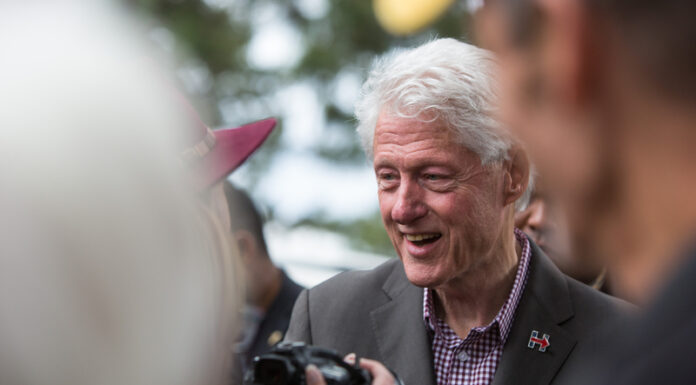During a recent appearance on ABC’s “The View” on December 11, 2024, former President Bill Clinton discussed the possibility of President Joe Biden granting a presidential pardon to his wife, Hillary Clinton. This conversation underlined the intricate connection between presidential powers, personal bonds, and the political consequences that arise from them.
Clinton expressed his willingness to discuss a potential pardon for his wife with President Biden, stating, “I think if President Biden wanted to talk to me about that, I would talk to him about it, but I don’t think I should be giving public advice on the pardon power.”
The former President took this opportunity to defend Hillary Clinton against the longstanding allegations related to her email usage. He cited a report from the State Department during the Trump administration that found no classified emails had been sent via Hillary Clinton’s personal device. “It was a made-up, phony story,” Clinton claimed, suggesting that the controversy was fueled by political motivations despite years of investigation.
Clinton also addressed concerns about the possibility of political retribution, specifically relating to Donald Trump’s potential return to office. He expressed hope that Trump would refrain from targeting political figures, including his wife. “I hope he won’t do that,” said Clinton.
This discussion arose in light of President Biden’s recent extensive use of presidential clemency powers. His administration has provided commutations to approximately 1,500 individuals and pardoned 39 others found guilty of nonviolent crimes, making it one of the largest acts of clemency in recent U.S. presidential history.
Biden’s pardon strategy primarily targets perceived systemic issues in the criminal justice system. When announcing the pardons, which included individuals convicted of marijuana offenses and other nonviolent crimes, Biden stated, “America was built on the promise of possibility and second chances.”
The ongoing legal issues faced by Hunter Biden, the President’s son, have intensified the conversation around presidential pardons. His case, which involves business dealings and substance use issues, has spotlighted the administration’s use of pardon powers.
While criminal justice reform advocates have generally supported Biden’s wide-ranging approach to pardons, there is ongoing debate about the influence of political considerations in these decisions. The discussion of a possible pardon for Hillary Clinton adds another dimension to the ongoing debate about the extent and application of presidential pardon powers.








